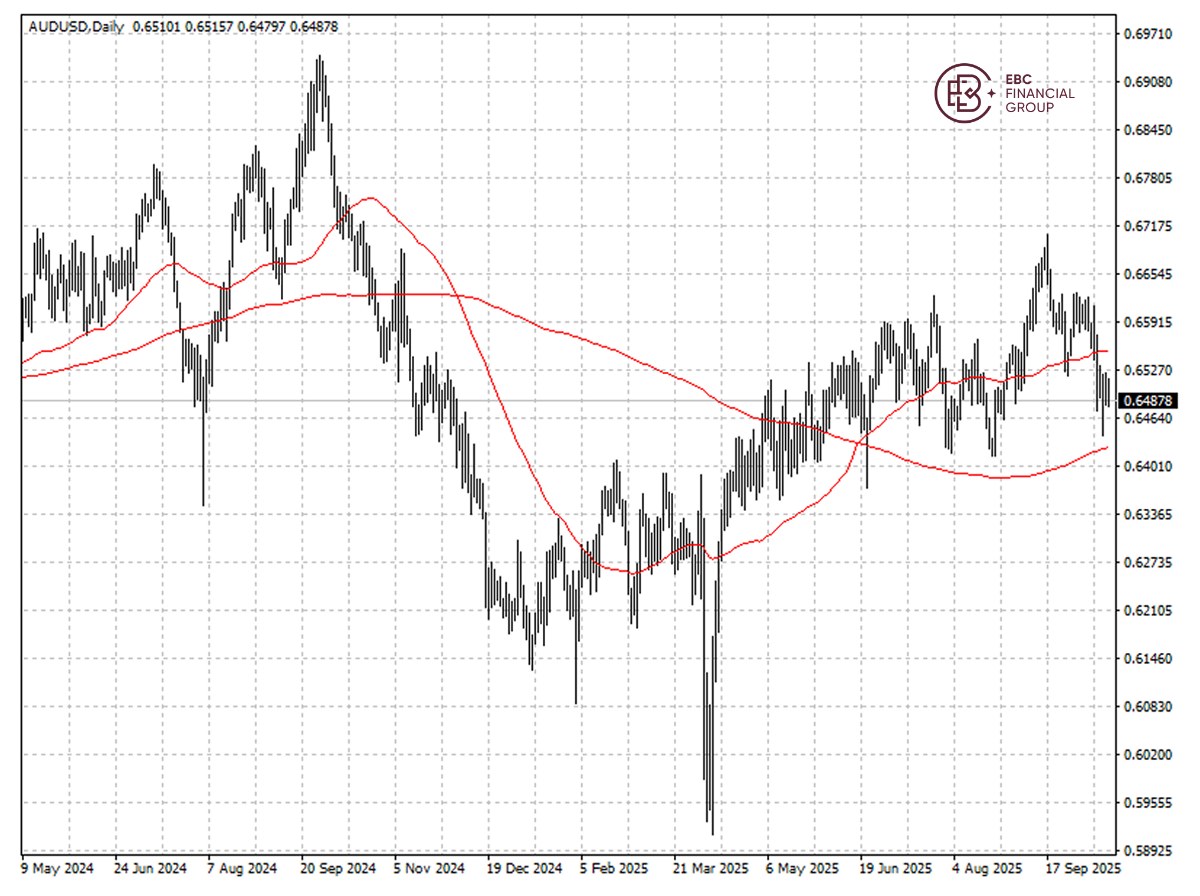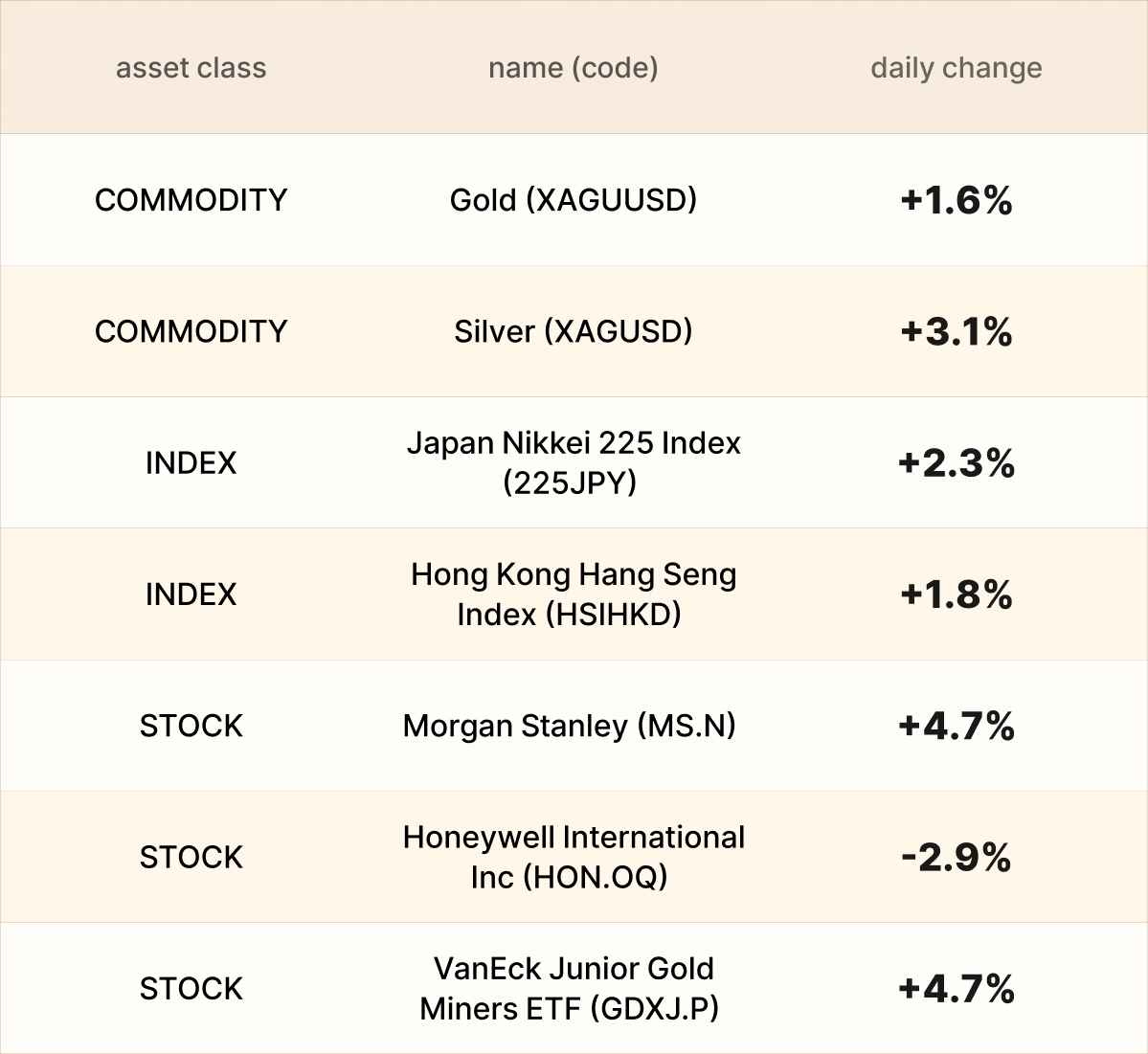The Australian dollar slipped on Thursday as the Sino-US trade war sapped
investor sentiment, while growing confidence of the Fed cutting its policy
interest rate this year also weighed on the greenback.

Australia's unemployment rate spiked unexpectedly to a near four-year high in
September as more people went looking for work, a weak result that revived hopes
for more policy easing.
Traders ramped up bets for a rate cut from the RBA in November to 72%.
Prospects for more easing had faded as policymakers fret about sticky inflation
and a rebound in consumer spending.
The country's goods trade surplus experienced a significant contraction in
August, well short of market expectations. Gold set to become the second-biggest
resource earner after iron ore this financial year.
Adding to headwinds, China's real estate market is expected to fall more
sharply than expected in 2025, extending an industry slump for a fifth-straight
year, S&P Global Ratings said in a report last week.
Higher US tariffs have so far had a smaller impact globally than expected,
but it would be "premature and incorrect" to conclude they have had no effect on
economic growth, according to the IMF.

The Australian dollar peaked around 0.67 in late September, before tumbling
below 50 SMA. The downtrend is likely to continue, but 200 SMA is expected to
stem the potential decline.
Asset recap
As of market close on 15 October, among EBC products, Morgan Stanley and
VanEck Junior Gold Miners ETFs led gains. Bank stocks continued to surprise
positively in their Q3 earnings reports.

Morgan Stanley's earnings beat expectations by the largest margin in nearly
five years on booming equities trading, investment banking and wealth management
results.
Gold surged past $4,200 per ounce to reach a new all-time high, propelling
shares in junior gold mining companies higher. Fed Chair Powell's latest remarks
suggested two further interest rate cuts may occur by year-end.
Disclaimer: This material is for general information purposes only and is not
intended as (and should not be considered to be) financial, investment or other
advice on which reliance should be placed. No opinion given in the material
constitutes a recommendation by EBC or the author that any particular
investment, security, transaction or investment strategy is suitable for any
specific person.



















